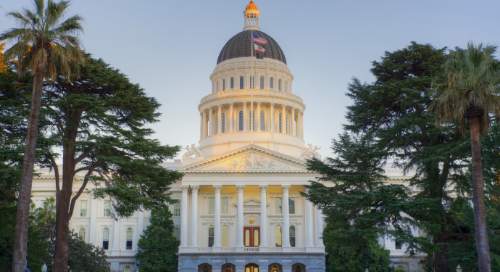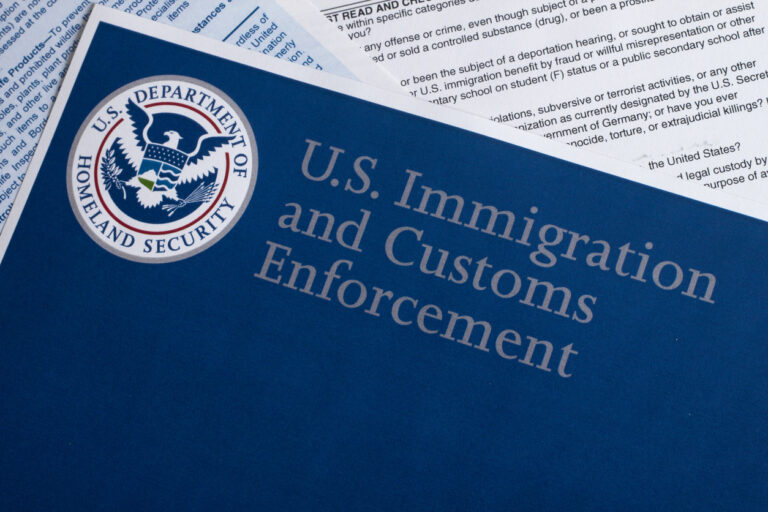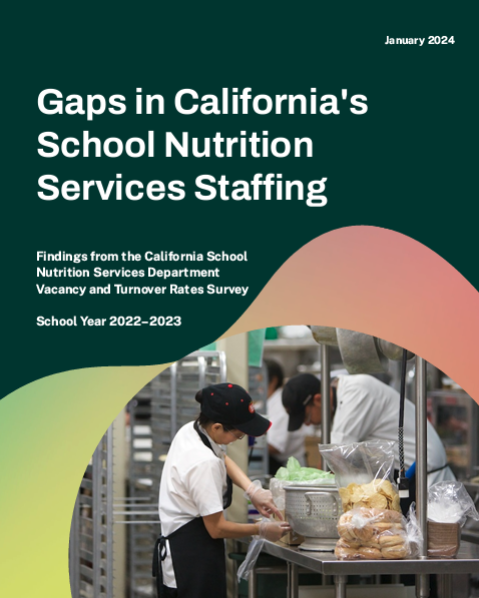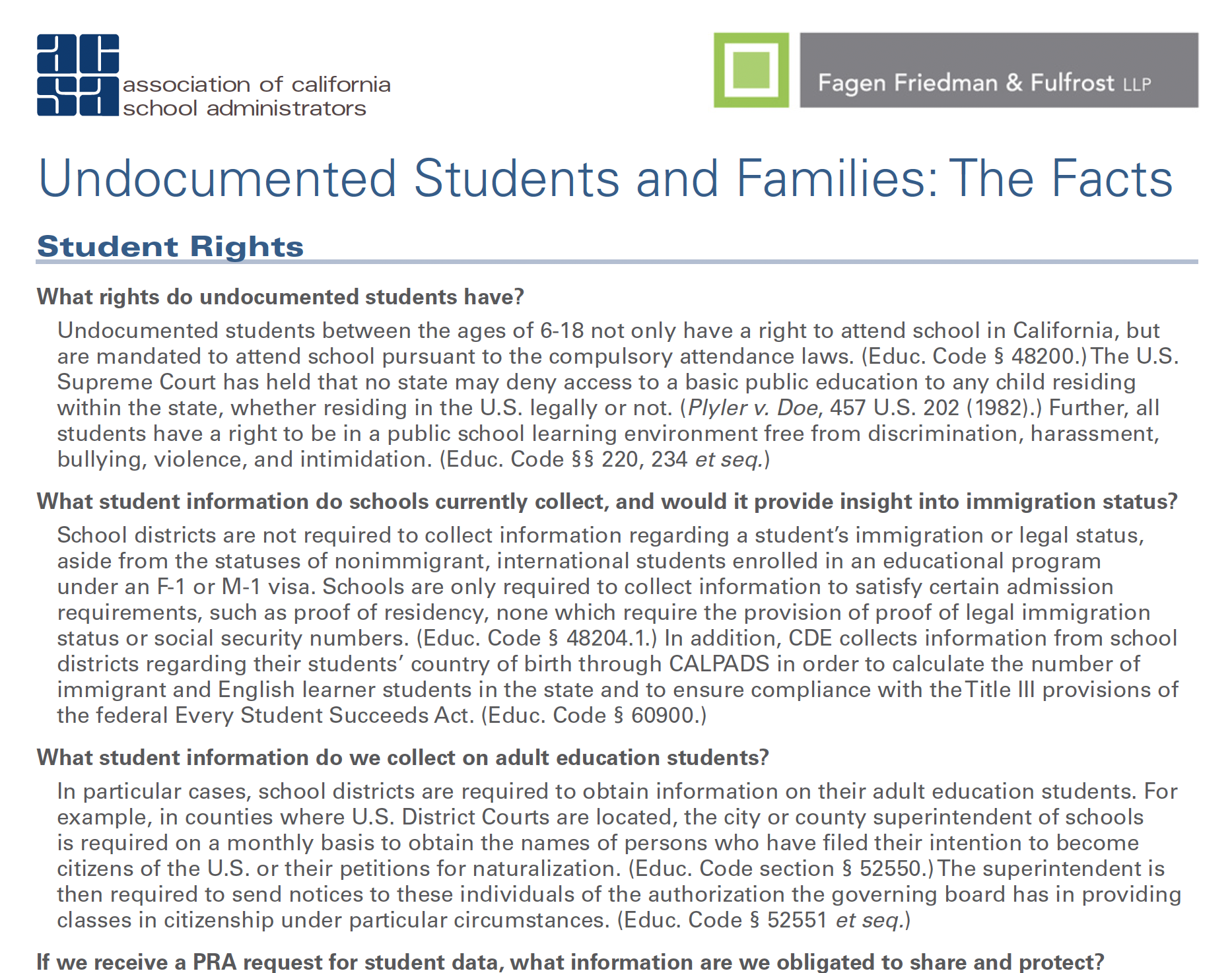This resource is provided by ACSA Partner4Purpose AALRR.
On January 19, 2022, in Thomas v. Empire Springs Charter School, No. 21-55284 (9th Cir. Jan. 19, 2022), the Ninth Circuit affirmed a lower court’s decision that provides additional insight into a local educational agency’s responsibilities after a parent revokes consent for their child to receive special education and related services.
Background
Student, who was 14 years old at the time of the due process proceeding before the Office of Administrative Hearings (“OAH”), was enrolled in an independent study homeschool program at Empire Springs, a charter school. The charter school required all of its students to complete the California Assessment of Student Performance and Progress (“CASPP”) or an alternative exam, unless the student had an Individualized Education Program (“IEP”). As part of the provisions of the independent study contract, Student’s parent (“Parent”) signed an agreement stating Student agrees to take the CASPP or alternative exam, unless excused.
Approximately a month prior to CASPP testing, Parent notified the charter school in writing that she revoked her consent for her child to receive the special education and related services in his IEP. In response to Parent’s revocation of consent, the charter school sent Parent a letter indicating that it would discontinue all special education and related services to Student, and Student would be treated as a general education student in all respects, including for purposes of discipline, testing, and graduation. Four days after revoking consent, Parent emailed the charter school and requested an initial special education assessment of Student.
The charter school’s requirement to complete the CASPP or alternative exam, unless a student had an IEP, was a condition of reenrollment. Parent believed that Student could be deemed exempt from testing on the basis that Parent had once again requested and received an assessment plan for Student’s initial evaluation.
At the end of the school year, the charter school disenrolled Student because Student did not complete any testing and was not eligible for the exemption. Student brought suit against the charter school and alleged that his disenrollment denied him a free and appropriate public education (“FAPE”).
District Court and Ninth Circuit’s Decisions
Student argued his disenrollment was akin to a disciplinary change of placement or expulsion, but both the United States District Court for the Central District of California and the Ninth Circuit were not persuaded. Student was disenrolled for not meeting testing requirements and not for violating any code of student conduct. Additionally, regardless of whether Student’s disenrollment was considered a “disciplinary action,” the courts concluded that Student was not entitled to the disciplinary protections under the IDEA.
Under Title 20 of the United States Code section 1415(k)(5), a child not yet eligible for special education and related services is entitled to the IDEA’s disciplinary protections if the local educational agency had “knowledge” that the child was a child with a disability before the child engaged in the behavior that was subject to the discipline. However, here, section 1415(k)(5)(C) was inapplicable — the charter school was not deemed to have “knowledge” that Student was a child with a disability because Parent had previously refused special education and related services even though Parent subsequently requested a new assessment so soon after revoking consent for special education and related services.
Parent’s revocation of consent to special education constituted a refusal of special education services after which Student could not seek protections under IDEA’s disciplinary provisions. Parent’s subsequent request for assessment, even though just days later, did not reinstate Student’s status as a special education student or extend the IDEA’s disciplinary protections. The courts held that the charter school’s disenrollment of Student did not deny Student a FAPE.
Takeaways
Once a parent revokes consent for special education and related services, the child is considered to be a general education student. A subsequent request for special education assessment for that child does not undo the parent’s revocation.
Upon the receipt of a written revocation of consent, the local educational agency must send parents a prior written notice in accordance with Title 34 of the Code of Federal Regulations section 300.503. The prior written notice should describe, among other things, that if a parent or legal guardian revokes consent for their child to receive special education and related services from their local educational agency prospectively, the student will be treated as a general education student, including for disciplinary purposes. Although the Ninth Circuit’s decision is an unpublished opinion, the guidance in its decision and in the District Court’s decision is instructive for school districts in California.
If you have any questions regarding this Alert, you can contact your attorney at Atkinson, Andelson, Loya, Ruud & Romo.





























